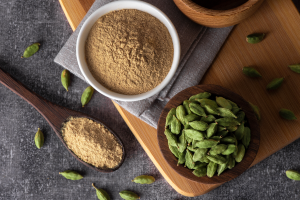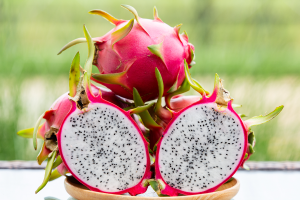

Including fruits in the daily diet can be challenging for some. But if you understand how important fruits are for the proper functioning of the body, you will make a conscious effort to include fruits in your diet. If you are on a weight loss journey and following a low carb diet, then including low carb fruits will become crucial. You will need to have an idea about the various fruits that are considered low in carbohydrates to incorporate them into your diet plan.
Regular consumption of fruits reduces certain chronic illnesses like diabetes, cardiovascular disease, and obesity. However, if you are trying to cut carbs, you might be apprehensive about eating fruits since fruits contain a lot of carbs and sugar. But choosing the right ones in the right amount can help you reap the health benefits while reducing your carb intake.
Best Low Carb Fruits
Some low carb diet plans suggest that fruit should be avoided, at least during specific periods of the diet, because it contains more carbohydrates than vegetables. But for most people, when consumed in moderation, they can all be beneficial without causing carbohydrate overload.
Fruits contain three types of sugar, i.e., glucose, fructose, and glucose.
Glucose is the preferred and standard energy source for the brain, muscles, and all other cells.
Fructose is entirely metabolised in the liver, unlike glucose. High fructose corn syrup, or agave nectar, is a type of high-fructose sweetener linked to an increased risk of obesity and cardiovascular disease but not the fruit itself.
Sucrose, though well-known as table sugar, is found in most fruits. Our bodies break down sucrose into two different forms, glucose and fructose, which are then metabolised by our bodies.
Abide by the recommendations of your doctor to avoid sugar in general and fructose in particular. However, you can always find a way to incorporate fruits into your low carb diet.
You should abide by your doctor’s recommendations if they call for you to refrain from
Fruits with more water and more fibre have fewer absorbable carbs per standard serving, as well as fewer total carbohydrates. These ingested carbohydrates reverse the ones the body absorbs when eating a regular fruit.
Although fibre is a carbohydrate, it cannot be absorbed by your body, so it has no impact on your blood sugar levels. To arrive at the food’s net carb. deduct the grams of fibre from its total carbohydrates.
Given below is the list of best low carb fruits that can go into your low carb diet:
1. Berries
Calorie-conscious people choose berries. The net carbs in blackberries are the lowest, while strawberries have the fewest carbs in comparison to other berries.
100 gms of strawberries have 7.6 gms carbs and 2 gms fibre, and a net carb of 5.6 gms. 100 gms of blackberries have 9.61 gms carbs and 5.3 gms fibre, and a net carb of 4.31gms
100 gms of raspberries have only 5.44 gms of carbs and are an excellent choice of low-carb fruit. They are also rich in potassium and vitamin C. They have potent antioxidant properties and phytochemicals, compounds that avert chronic diseases.
2. Watermelon
Watermelon is a fruit of choice if you want to reduce carbs and increase hydration because it’s very hydrating. This classic summer fruit has only 7.55 g of carbs for every 100 gms, making it one of the most ideal low carb fruits. Since it contains little fibre, this carbohydrate is mostly absorbed. Additionally, high in vitamin A and water, watermelon will keep you full while containing minimal calories. Even the rind of the fruit has health benefits.
Lycopene, a plant chemical that gives watermelon its red colour and antioxidant capabilities, is particularly abundant in the fruit. Watermelon has the maximum bioavailable lycopene, roughly 60% more than a tomato, according to a report published in the International Journal of Food Properties. The term “bioavailability” refers to a substance’s capacity for absorption by the body. that was done
3. Cantaloupe
This well-liked orange melon only has 7.26 g of carbohydrates or 8.16 g of carbohydrates, and 0.9 g of fibre per 100 g of fruit, making it a terrific summertime treat. Melons are regarded as low-sugar fruits as well.
4. Avocados
Some people consider avocados to be vegetables, but avocados are fruits and they also contain only a tiny amount of carbohydrates. Only 1.83 g of carbohydrates are obtained from each 100 g of avocado, leaving you with an estimated 8.53 g of carbohydrates and 6.7 g of fibre.
You will also receive beneficial monounsaturated fats from that serving of avocado, which is proven to be heart-healthy. Avocado can be served with boiled eggs, sliced on top of a salad or a wrap, or as an avocado tomato salad. A perfect inclusion for a low carb diet.
5. Honeydew
Honeydew, yet another melon, has 9.9 grams of carbs and 0.9 grams of fibre, with a net carb of 9 grams for every 100 gms of the fruit. It is loaded with Vitamin C and potassium, which is an electrolyte required to manage blood pressure levels. It also balances the pH levels in the body and aids effective metabolism.
6. Olives
Olives are indeed a fruit and a good source of unsaturated fats, iron, and vitamin E. Replacing saturated fat with healthier unsaturated fats, such as monounsaturated and polyunsaturated fatty acids, can improve heart health and reduce the risk of type 2 diabetes.
A cup of whole olives includes 2.4 mg of vitamin E, 4.9 mg of iron, 1.9 g of fatty acids, and 4.5 g of net carbohydrates. Be mindful about your portion because olives are high in salt as they are cured.
7. Kiwi
Since it is one of the sweetest fruits, you might be hesitant to include it in your low-carb diet. But still, you can add this fruit to your low carb diet.
One kiwi with the skin on includes 8 g of net carbohydrates, 215 mg of potassium, 24 mg of calcium, and 64 mg of vitamin C. An earlier study found that the antioxidants in kiwis may promote immunological function, hence reducing the risk of the common cold and the flu. The fruit tastes delicious even when eaten raw. A smoothie prepared with kiwi is even more yummy.
8. Peaches
Peaches are a very good fruit for the summer because they can be eaten raw, added to a salad, or even grilled as a tasty side dish for a meal.
One small peach has 10.5 g of net carbohydrates, 247 mg of potassium, 21 micrograms (mcg) of vitamin A, and about 9 mg of vitamin C.
The phytochemicals (antioxidants) that give peaches their yellow/orange colour also support eye health. One to two servings of fresh peaches were found to be beneficial in preventing glaucoma, although more research is required. Lutein and zeaxanthin, the two phytochemicals found in kiwi, are very beneficial for eye health as they promote healthy cells and block harmful/blue light.
9. Cherries
A half-cup of cherries contains roughly 9 g of net carbohydrates and 7 mg of Vitamin C.
Tart cherries are a good source of melatonin, the sleep hormone that regulates the sleep-wake cycle. Cherries are also a source of antioxidants, which help prevent cell damage. A study showed that tart cherry juice could lengthen individuals’ sleep by 84 minutes.
Conclusion
Low carb diet foods need not be rich only in protein and fat. You can also incorporate low carb fruits in your diet plan to get more nutritional benefits. As you stick to your low-carb diet, keep the list of low-carb fruits handy to bring some interesting flavours to your plate and ensure that your diet plan is nutritionally complete.




